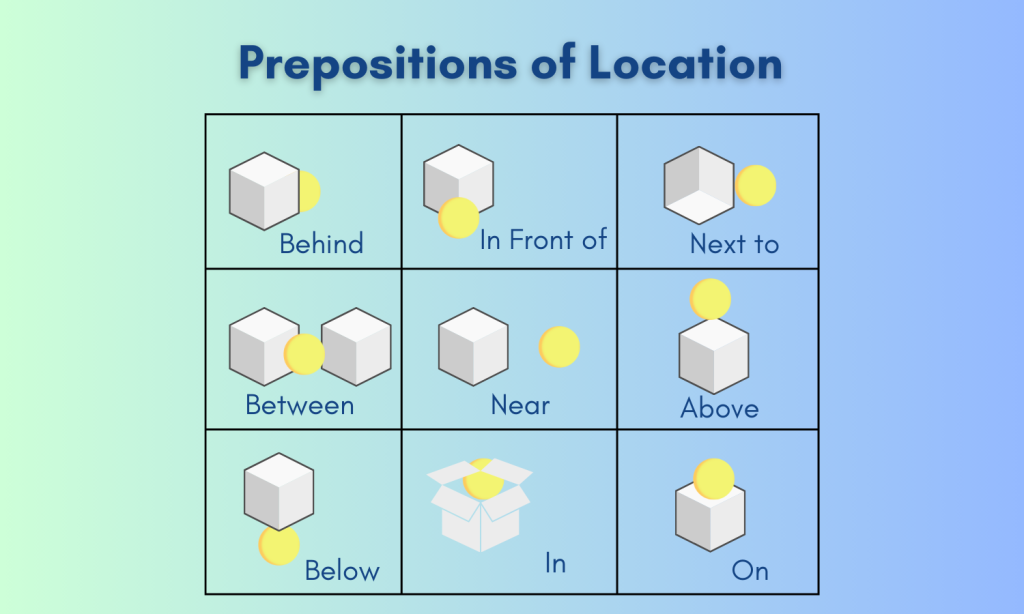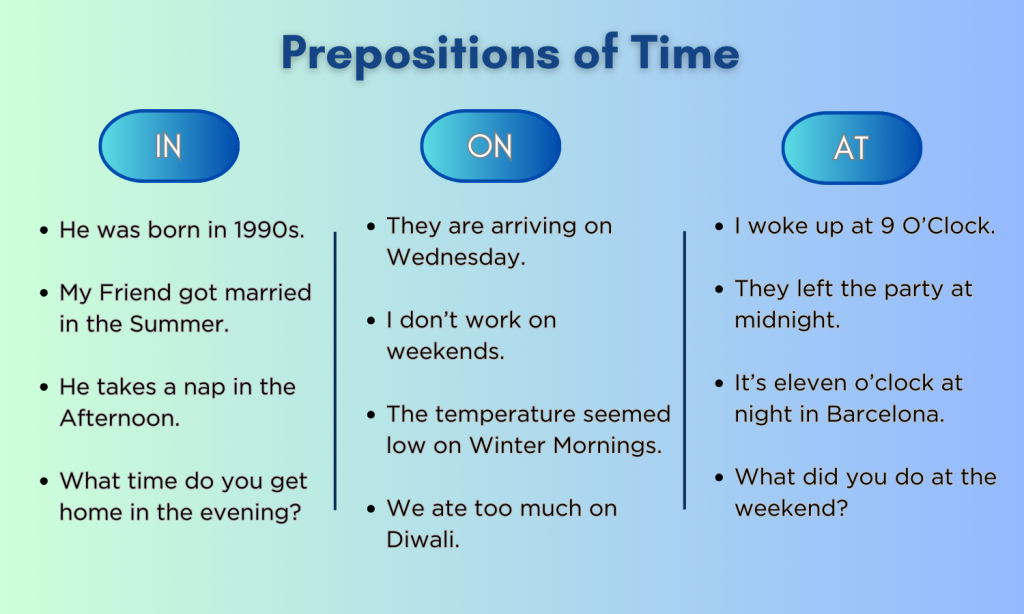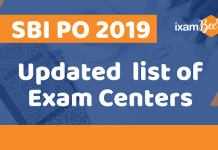Introduction
Hey there, future government job achievers! Are you gearing up for those competitive exams that include an English language section? Don’t fret; we’re here to unravel one of the trickier aspects of English Grammar – Prepositions! Often seen as a stumbling block by many, understanding prepositions can be a game-changer in acing those language-based questions.
Many aspirants take the English language section for granted during their preparation, assuming it is one of the easy sections. But the fact is, the English language can be a marks-gaining and marks-draining section for you, depending upon your preparation. Hence, if you want to make English a marks-gaining section for you, then you should not take any of this topic for granted.
This blog is going to be a guide for you for the Preposition topic that will help you in your English Language section of any government competitive exam. We understand Preposition is something that we all have learned since we were in Vth or VIth standard. But with going time, we stopped emphasizing their practising; we only spoke and wrote.
In this blog, we’ll break down the concept of prepositions, explore their rules and uses, and dive into the different types with plenty of examples along the way. So, let’s get started!

What are Prepositions?
Before we dive into the nitty-gritty, let’s define prepositions. In simple terms, prepositions are words that show the relationship between different elements in a sentence. They indicate how nouns, pronouns, and phrases relate to other words in the sentence. These seemingly tiny words hold significant power in shaping sentence structure and meaning.
In other words, prepositions are small words used in sentences to indicate the relationship between nouns, pronouns, phrases, and other parts of the sentence. Typically, prepositions are located toward the end of a sentence, just before a noun or pronoun.
Prepositions are pervasively used in every sentence of the English language that holds the power to change the whole context of any sentence. These are often taken for granted as they are hugely influential and too little to talk about. Let’s break it down into two terms, ‘Pre and ‘Position.’ Here Pre means before, and position means the place. This means Preposition is something that always comes before any subject, i.e., any noun or pronoun.
Grammar and its Evolution
The rules of Grammar have evolved in the coming years. Previously, the prepositions used at the end of sentences were considered incorrect from the Grammar perspective by the Teachers. This is because of the belief that prepositions should always precede nouns or noun phrases. This leads people to write lengthy sentences to avoid ending any of them with a preposition.
But the new rules get accepted down the line, and the sentences like ‘Samar is someone I’d love to work with’ became as correct as ‘I would love to work with Samar.’
These days we are generally more relaxed about this rule. We say things such as “Emma is the friend who I went to Japan with” rather than “Emma is the friend with whom I went to Japan.” While the second sentence is better in the eyes of a very old-fashioned English grammarian, it sounds inappropriately formal and quite “clunky.”
Another good example is, “This is a situation I won’t put up with.” This sounds a lot better and much more natural than “This is a situation up with which I will not put.” This gives birth to the most common type of Preposition, i.e., Dependent Preposition. These are different from traditional preposition types, but their use is gaining popularity in recent times.
What is a dependent preposition?
Some verbs, adjectives, and nouns have particular prepositions that are used after them and before a noun. These are called dependent prepositions. The name “dependent preposition” is a little confusing as it is really the verb or adjective that depends on the Preposition rather than the other way round, as the name “dependent preposition” suggests. Dependent prepositions are really difficult to learn because there often doesn’t seem to be any clear, logical reason why we use one Preposition rather than another with a particular verb or adjective when we put them together.
Some common dependent prepositions are: believe in, worry about, depending on (verbs), good at, afraid of, keen on (adjectives), increase in, the difference between, similarity to (nouns)
Some dependent prepositions are easier to remember than others, for example, “I’m interested in grammar.” Having an interest “in” something seems logical, and also, the word “interested” begins with “in.” However, we say, “I am fascinated by grammar” or “I am fascinated with grammar,” even though “fascinated” means the same as “very interested.”
With many dependent prepositions, there is no obvious logic as to why we use one Preposition rather than another. In a sentence such as “I apologized to my sister for being late,” which we could also say as “I apologized for being late to my sister,” the “apologized to” seems logical. Because the apology is something we are giving to somebody. However, there is no clear and obvious reason why we apologize “for” something.
How can we remember prepositions?
Sometimes we can invent memory aids to help us remember prepositions, but it might be better to focus on learning them as chunks of language, that is, learning the two words together. This is also the case with phrasal verbs. Simple gap-fill practice exercises are good for learning dependent prepositions and phrasal verbs and learning from our mistakes.
The more that you expose yourself to English through talking, reading, and watching movies and videos, the more you will start to be aware of particular dependent prepositions.
You will start to recognize when something you say or write “sounds wrong” because you have used the wrong Preposition, and you will be able to self-correct in a similar way to which you recognize when a word is spelt incorrectly.
Rules for Using Prepositions
Prepositions may seem elusive, but fear not! We have some rules to guide you on how to use them correctly:
Rule 1: Position Matters
Prepositions typically come before a noun or pronoun to establish a relationship with other words. For instance:
– She sat beside me during the meeting.
– The keys are under the doormat.
Rule 2: No Preposition at All
Sometimes, sentences do not require prepositions. For example:
– I go home every evening.
– The child slept peacefully.
Rule 3: Proper Usage with Verbs and Adjectives
Certain verbs and adjectives are followed by specific prepositions. Here are some examples:
– He apologized for his mistake.
– She is interested in classical music.
– They are waiting at the bus stop.
Common Uses of Prepositions
Prepositions find diverse applications in the English language. Here are a few of the most common uses:
Use 1: Indicating Location
Prepositions help us describe the location of people, objects, or places:
– The cat is on the table.
– The library is across the street.

Use 2: Time Expressions
Prepositions play a crucial role in discussing time-related events:
– The concert is scheduled for Saturday.
– He likes to take a walk after dinner.

Use 3: Showing Movement
Prepositions assist in expressing movement or direction:
– The kids are running towards the playground.
– We walked through the forest.
Use 4: Possession
Prepositions help indicate possession or ownership:
– The book belongs to John.
– The keys are of the car.
Types of Prepositions with Their Examples
Let’s explore different types of prepositions based on their usage:
Type 1: Simple Prepositions
A simple preposition is a short word that establishes the relationship between objects or elements in a sentence. These small yet powerful words, such as “in,” “on,” “at,” “under,” and “beside,” play a crucial role in shaping sentence structure and meaning in the English language.
These are the most common prepositions that show relationships in various contexts:
-In, on, at, under, beside, above, between, behind, and many more.
Examples:
- He placed the vase on the table.
- She placed the book on the table.
- The cat is hiding under the bed.
- We’ll meet at the coffee shop.
- The keys are beside the front door.
Type 2: Compound Prepositions
A compound preposition is formed by combining two or more words to indicate the relationship between objects or elements in a sentence. Examples of compound prepositions include “in front of,” “on top of,” “out of,” and “with regard to.” These multi-word expressions add complexity and precision to the English language, enhancing its versatility.
These are formed by combining two or more words:
In front of, on top of, out of, by means of, with regard to, etc.
Examples:
1. The children played in front of the house.
2. The book was kept on top of the shelf.
3. They ran out of the building during the fire drill.
4. The artist painted a picture with regard to scenic beauty.
5. The kids played in front of the house.
Type 3: Phrasal Prepositions
Phrasal prepositions are composed of two or three words that function as a single unit to indicate the relationship between objects or elements in a sentence. Examples of phrasal prepositions include “in spite of,” “in addition to,” “by virtue of,” and “on behalf of.” These unique combinations contribute to the richness and expressiveness of the English language.
These consist of two or three words, functioning as a single unit:
-In spite of, in addition to, in front of, by virtue of, and others.
Examples:
1. In spite of the rain, they continued the outdoor event.
2. In addition to studying math, she also enjoys playing the guitar.
3. The team won the championship by virtue of their hard work and dedication.
4. He accepted the award on behalf of the entire organization.
5. In addition to studying, she also enjoys painting.
Type 4: Double Prepositions
Double prepositions are prepositional phrases that consist of two prepositions combined together to convey a specific meaning or relationship between objects or elements in a sentence. Examples of double prepositions include “into,” “onto,” “within,” and “without.” These unique combinations add depth and nuance to the English language, allowing for more precise communication. These are composed of two prepositions:
– Into, onto, within, without, etc.
Examples:
- The book is within the backpack.
- The hikers ventured into the cave.
- The cat leapt onto the roof.
- The treasure is hidden within the old castle walls.
- She managed to complete the assignment without any help.
Are there lots of prepositions to learn?
The good news is that there are not many prepositions, and there are no new prepositions being invented, as is the case with nouns and verbs, for example. Also, with prepositions, there is virtually no difference between American and British English. The only example of an exception that I can think of is with the adjective “excited.” British English speakers say, “I’m excited about my holiday,” while Americans say, “I’m excited for my holiday.” I hope this blog has helped you. I’m excited about my next blog.
Conclusion
Congratulations, dear aspirants! You’ve conquered the world of prepositions, a crucial aspect of the English language section in government job exams. Understanding prepositions and their diverse usage is bound to elevate your language skills, making you more confident and precise in communication.
Remember, to practice the English language is the key. Immerse yourself in reading and writing to reinforce your learning. Soon, prepositions will be your trusted allies in acing those language-based questions. So go forth, conquer those exams, and make your dreams of a government job a reality!
Now, go ahead, shine bright, and make us proud! Best of luck on your journey to success!
To help you prepare 50% faster for competitive exams, ixamBee provides free Mock Test Series and all the Current Affairs in English and Current Affairs in Hindi in the BeePedia capsules for GA Preparation. You can also get the latest updates for Bank PO, Bank Clerk, SSC, RBI Grade B, NABARD, and Other Government exams.














